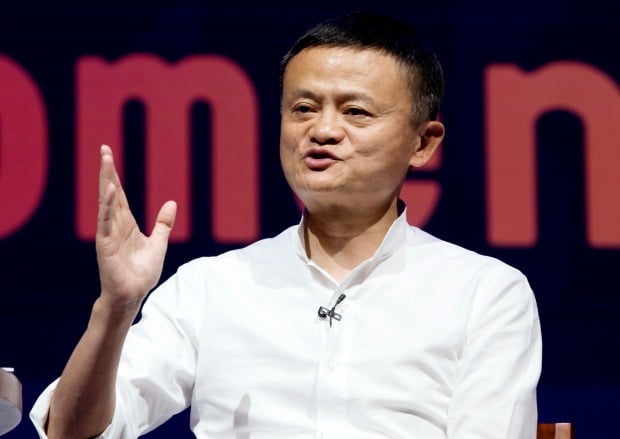① Enters the’New Cold War’ over technological hegemony with the United States
② Xi Jinping wants big tech’one voice’ under the government
③ “Legal pressure on local companies will be stronger”

Ma Win, founder of Alibaba. On the 12th (local time), Hu Xiaoming, CEO of Ant Group, a fintech subsidiary of Alibaba, resigned. Photo = AP
On the 12th (local time) in China, 12 technology companies, including Tencent and Didichusing, were fined by the authorities for violating the antitrust law, according to the Wall Street Journal (WSJ) of the United States and Japan. According to the media, China’s State Market Supervisory Authority has fined 500,000 yuan (about 87.3 million won) each for violating the antitrust laws in 10 M&A transactions. The fines are relatively small compared to the size of the company, but experts interpreted it as a reminder that antitrust laws could put pressure on companies.
China has stepped up oversight of technology giants (Big Tech) in recent months. WSJ cited sources and reported that it is considering imposing a record-high penalty on Alibaba, exceeding the $975 million fine that the Chinese authorities imposed on Qualcomm in 2015.
This is because there is a report that Alibaba has forced the participating companies to choose not to enter the competing platform. While Prime Minister Li Keqiang recently said at the National People’s Congress (NPC) that “the state supports the innovation and development of platform companies,” the WSJ interpreted it as “the intention that no matter how large or innovative companies are, they should cooperate with the state.”
On the 12th, Hu Xiaoming, the CEO of Ant Group, came to the table. Alibaba’s fintech subsidiary Ant Group was initially scheduled to list the company on the Shanghai and Hong Kong stock exchanges in November last year, but the listing was postponed after founder Ma Yun criticized Chinese financial authorities in public. After that, Ma Yun was called to the Chinese financial authorities, and Hu Xiao Ming was called together.
Chinese financial authorities are virtually changing the nature of businesses to put Ant Group completely under government regulation. Ant Group, which started with the mobile payment service’AliPay’ and expanded its business to loans and insurance, was virtually out of financial regulation due to its complex governance structure. About 800 million people, more than half of China’s population, use the company’s services, but from the perspective of Chinese authorities, it was the reason that they were not properly regulated. The Ant Group has recently been in the process of reorganizing into a financial holding company that can be properly regulated at the request of the financial authorities. And it was Hu Xiao-ming who was promoting this restructuring.
The Chinese financial authorities have pressed the Ant Group, which is using excessive leverage (debt) to sell financial products through the People’s Bank, which is under the government, and to utilize vast amounts of customer data. These two services have been the foundation for Ant Group’s rapid growth. AFP said, “Even if Alibaba completes the reorganization of the holding company, it may receive additional demands for antitrust reasons.” It means that there are still legal issues.

Chinese President Xi Jinping. Hankyung DB.
China has entered the’New Cold War’ over’technological supremacy’ with the United States after US President Joe Biden took office. Unlike former President Donald Trump, who was hostile to China in many ways, Biden is advocating a so-called multi-layered diplomatic strategy in which “cooperation” in resolving Corona 19, “competition” in technical issues, and boldly speaking out in human rights issues.
Experts explain that in this era of the Cold War, Chinese President Xi Jinping wants his own technology companies to speak out under the government. A representative example is the recent voice-based SNS’Club House’ that immediately blocked the use of the app when issues related to human rights in Hong Kong and Xinjiang Uyghurs and bilateral issues (orthodox issues in China and Taiwan) appeared freely. In addition, in the atmosphere of the confusion after the recent coronavirus infection (Corona 19) and the 100th anniversary of the founding of the Communist Party, and Xi Jinping’s single-person dictatorship, opposition or criticism is strictly prohibited.
Reporter No Jeong-dong Hankyung.com [email protected]
Ⓒ Hankyung.com prohibits unauthorized reproduction and redistribution
